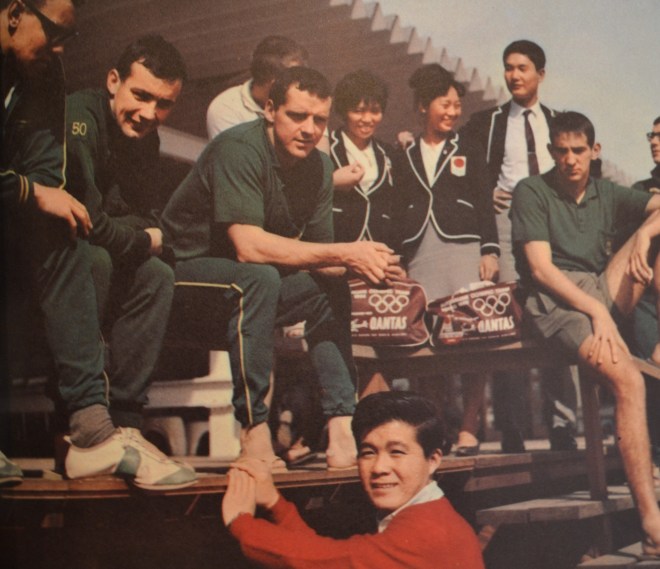Three high school friends from Yokohama are on a mission as they take the train to downtown Tokyo. In Goro Miyazaki‘s film, From Up on Poppy Hill (コクリコ坂から), it’s 1963, the Olympics are a year away, and Tokyo is crowded with people, congested with cars, and filled with the sounds of jackhammers and creaking of cranes.

Change is coming to Tokyo, for good and for bad. A subplot focuses on the high school students who are protesting the decision to demolish an old mansion that houses the various clubs that make the school’s social tapestry: the philosopher’s club, a newspaper, a group that forecasts the contents of future exams. A small group of students eventually change the views of the majority who had previously believed that “out with the old and in with the new” applied to all places and things. This sweeping change in views saves the club house.
Certainly, that was a powerful societal theme in Tokyo in the 1960s – How do we change and modernize so that the international community looks upon Japan with respect and admiration, while still maintaining who we are as Japanese?

The main plot is a love story between Umi, a girl who lost her father in the Korean War, and Kazuma, a boy who’s real father is a mystery, but was at first suspected to be the same as Umi’s. The mystery unravels as Umi and Kazuma ask questions about their past, learning of the pain and angst of their parents’ generation who lived and died in the turmoil and confusion of the Pacific and Korean wars.
And yet, because this is a story of young love, the tone is upbeat and sweet. The son of acclaimed anime director and screen writer of this film, Hayao Miyazaki, applies a rosy sentimental touch to the times. The film opens with a springy, jazzy tune called “The Breakfast Song”, that speaks of the optimism that comes with the day’s first meal.
The scene when Umi and Kazuma’s love first blooms enters with the bouncy hit song of that time, Kyu Sakamoto’s “Ue o Muite, Arukou” (aka: The Sukyaki Song). You can see that in this clip below (with English subtitles).
Want to take a nostalgic look at Japan in 1963? Watch From Up on Poppy Hill.

You must be logged in to post a comment.